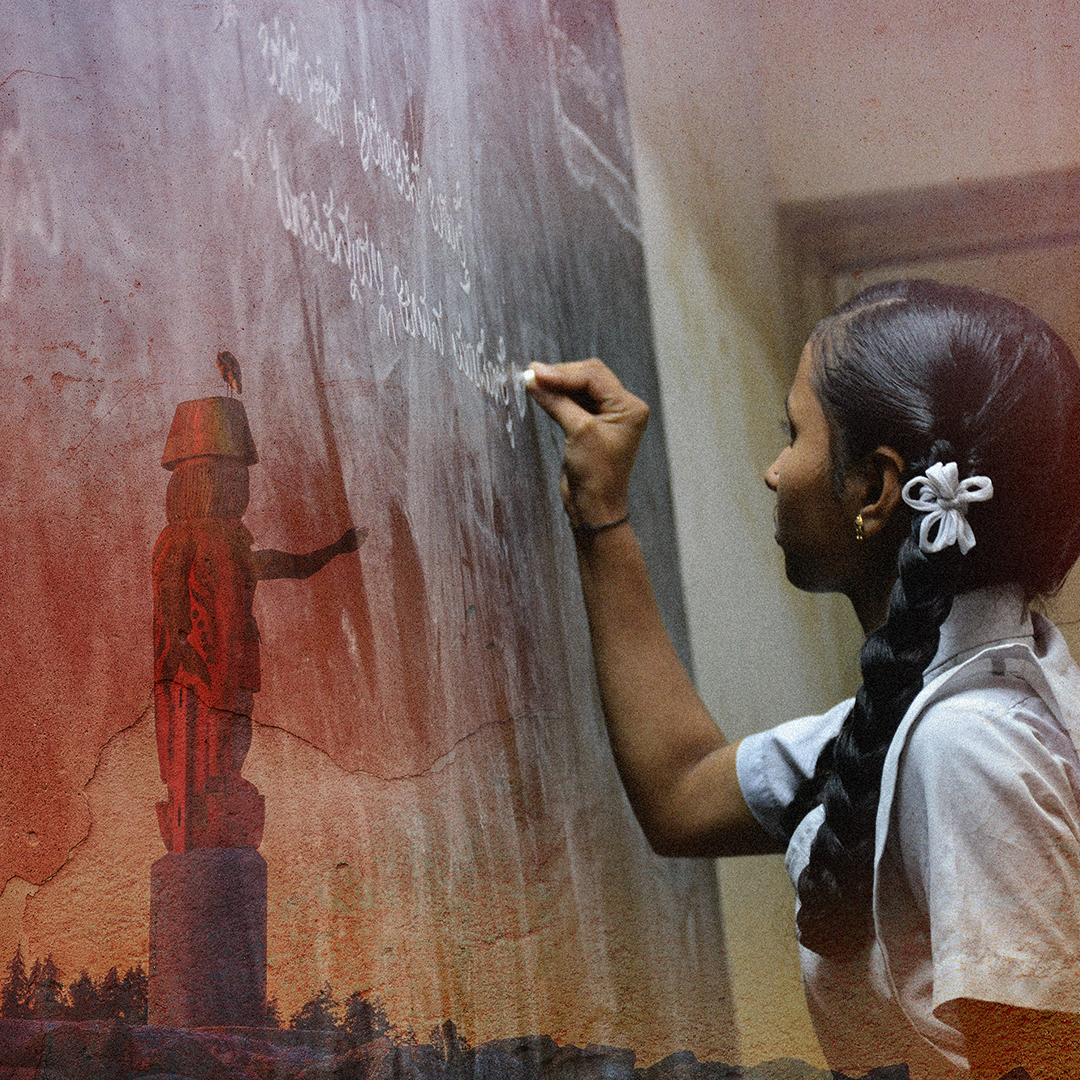Racial Reconciliation May Not Be What You Think It Is
The real question of Christian discipleship is not can I be your brother in Christ, but can I be your brother in law?
I first heard this statement from my good friend Rev. Dr. Gabriel Salguero in a class he was teaching. Who can’t your child marry? Questions like these help us get to the core of racial reconciliation. It’s one thing to be in close proximity to someone who looks different than you. It’s another to be in deep relationship with one different than you. Sadly, the Church in the United States (and around the world) has had a hard time living into this beautiful kingdom reality.
What Reconciliation is Not
Racial justice and reconciliation remain one of the most urgent matters of faith and public witness. One could argue that the primary fruit of the gospel is not going to heaven when you die, but the miraculous new family that is created out of death and resurrection of Jesus.
In this respect, the cross of Christ isn’t just a bridge that gets us to God, it’s a sledge hammer that breaks down walls that separate us.
What does it look like to reflect this reality? Well, it first entails we clarify what we mean when we speak about racial reconciliation. Before I offer some ways forward, let’s examine ways that have led us backwards.
First, reconciliation is not colorblindness.
For many people, colorblindness is seen as a virtue. Some proudly say, “I don’t see color, I see people.” I understand the sentiment but colorblindness is not a virtue of the Kingdom of God.
In the book of Revelation (7:9) we see the people of God gathered around the throne and it lets us know that they are from every nation, tribe and tongue. God sees and celebrates color.
Second, racial reconciliation is not diversity.
To be sure, diversity is a good thing, but in itself it is not reconciliation. On the surface diversity looks wonderful. However, the temptation is for us to stop there. When we do we are no different from New York City subway cars. NYC subway cars are crowds of diverse, anonymous people in close proximity. But the church is called be more than a sanctified subway car.
When the gospel is deeply at work, racial reconciliation results in a diverse community that embraces the unique gifts and acknowledges the distinctive sins of their ethnic-racial-social makeup while experiencing loving communion with others under the Lordship of Jesus.
This is a nice vision, but to get there means we have a lot work to do.
To be sure, diversity is a good thing, but in itself it is not reconciliation. Share on XIn my work as lead pastor at New Life Fellowship in Queens, NYC, we have people from over 75 nations. We’ve been working towards racial reconciliation for nearly three decades. Although we have a long way to go, over the years we’ve learned some important lessons and have seen remarkable fruit. It’s out of our community life that I offer some ways forward.
Racial Reconciliation (especially in the US) requires us to have a number of items we thoughtfully work through as the people of God. Hopefully this short list can help us get going.
What Racial Reconciliation Requires
A deep commitment to listening to others even when it’s hard
When it comes to conversations on race our level of “offendability” often reveals the level of our maturity. If we can’t get through this point, we are not going to get very far. Reconciliation requires us to listen deeply to one another.
Our level of 'offendability' often reveals the level of our maturity. Share on XAs Douglas Steere has said, “To listen to another’s soul may be almost the greatest service that any human being ever performs for another.”
But let’s be clear. The ones who need to listen first and more often are the ones who have enjoyed the privileges of power. Racial justice and reconciliation requires a self-emptying; a kenosis as it were. Those without power are already empty. The onus is on those with power to listen deeply, relinquishing their social power for the greater good of reconciliation. In this country, our White brothers and sisters need to lead the way in listening deeply to the stories and experiences of people of color. This doesn’t mean people of color don’t need to listen (we do!), but order is important. There must be a relinquishing of control. This is the way of the cross.
The onus is on those with power to listen deeply, relinquishing their social power. Share on XThis requires us to have a level of self-awareness that aids us whenever we are triggered and want to shut down. Without question, to offer faithful presence by listening deeply is hard, but it certainly is possible.
An honest wrestling with the history of racial oppression in our country
You can’t understand the current experience of racial hostility in this country without also honestly facing the history of racial oppression experienced first by Native Americans, slavery experienced by African American people and racial discrimination that’s taken place throughout our country’s history. We can’t just “get over it!”
What we are experiencing is the fruit of centuries of racial oppression and hostility. Often people will look to President Obama’s election as proof that racial oppression has been eradicated. But that’s much too simplistic a view. The residue of racial oppression remains. On a personal level we can’t understand our present reality without an honest recognition of our past. The same principle applies to our present national reality.
What we are experiencing is the fruit of centuries of racial oppression and hostility. Share on XCultivating the language and practice of grief and lament
Reconciliation can’t happen without us lamenting together. Two-thirds of the psalms are songs of lament. In the practice of lamenting, we pour out our souls to God, and in turn receive grace to respond. Lamenting is an act that promotes individual and personal shalom.
The sad truth about modern spirituality is we often avoid feeling our own pain and in the process we avoid feeling the pain of others. When this happens it’s impossible to do the work of reconciliation. We are instructed in Scripture to weep with those who weep. Why? Well, beyond receiving personal comfort, it is often our tears that serve as the impetus for a new social imagination.
Why lament? Because often our tears serve as the impetus for a new social imagination. Share on XPersonal acceptance and appreciation of your racial/ethnic identity
How can you be reconciled to others if you first haven’t been reconciled to yourself?
The book of Revelation teaches us that our ethnicity will last throughout eternity (cf. 7:9). Therefore, we better start getting used to being comfortable in our own skin! Self-hatred is not a fruit of the Spirit. As a pastor of a very diverse congregation I regularly have conversations with people who exhibit some form of embarrassment about their racial or ethnic identity.
The gospel doesn’t dissolve our differences, it celebrates them. When I see folks honoring their racial/ethnic identity, whether it be their Nigerian, Italian, Colombian, West Indian or Korean makeup, it serves as a reminder that the kingdom of God is a rich buffet. The faster we unapologetically celebrate who we are, the faster we can do the work of reconciliation.
A deep spirituality of prayer
The racial hostility in our world is so deep we would be mistaken that we can make significant progress without deep spirituality of prayer. There are principalities and powers at work in the world. As I’ve heard my friend Glenn Packiam say, “Praying ‘thy Kingdom come’ is one of the most powerful things Christians do.”
The church is in desperate need of reimagining of prayer on two fronts, namely, personal prayer and congregational prayer. As a pastor, I’m most concerned about the lack of time people give to prayer. This lack of prayer has marked our lives to be functional athiests.
At one point in the gospels Jesus said to his disciples, “this (demon) can only come out by prayer.” When it comes to this evil power of racial hostility the same principle applies.
The church needs to reimagine prayer on 2 fronts: personal and congregational. Share on XGrowing in awareness of our implicit racial bias
One of the ways we dishonor the image of God in people is by uncritically examining the assumptions and biases we have against them. In the sermon on the mount, Jesus calls us to the way of interiority, that is, gaining awareness of the underlining feelings and thoughts that often lead to violence against others.
We have all been socialized by our families of origin and surrounding culture to see people in particular ways. We often live our lives without ever reflecting on the stories and lies we’ve been told about certain groups of people. Consequently, we perpetuate the myths and stereotypes unconsciously. Racial reconciliation requires us to have a level of self-awareness that often is tragically missing in our culture.
Regular confession, repentance and forgiveness
Finally, reconciliation requires regular confession, repentance and forgiveness. We come together as deeply broken and frail people. At our church when we gather for communion we recite a historic confession. This confession anchors us as people in desperate need of regular repentance and forgiveness. I submit this as a confession we regularly repeat as we work for racial reconciliation:
Most merciful God,
we confess that we have sinned against you
in thought, word, and deed,
by what we have done,
and by what we have left undone.
We have not loved you with our whole heart;
we have not loved our neighbors as ourselves.
We are truly sorry and we humbly repent.
For the sake of your Son Jesus Christ,
have mercy on us and forgive us;
that we may delight in your will,
and walk in your ways,
to the glory of your Name.
Amen.



